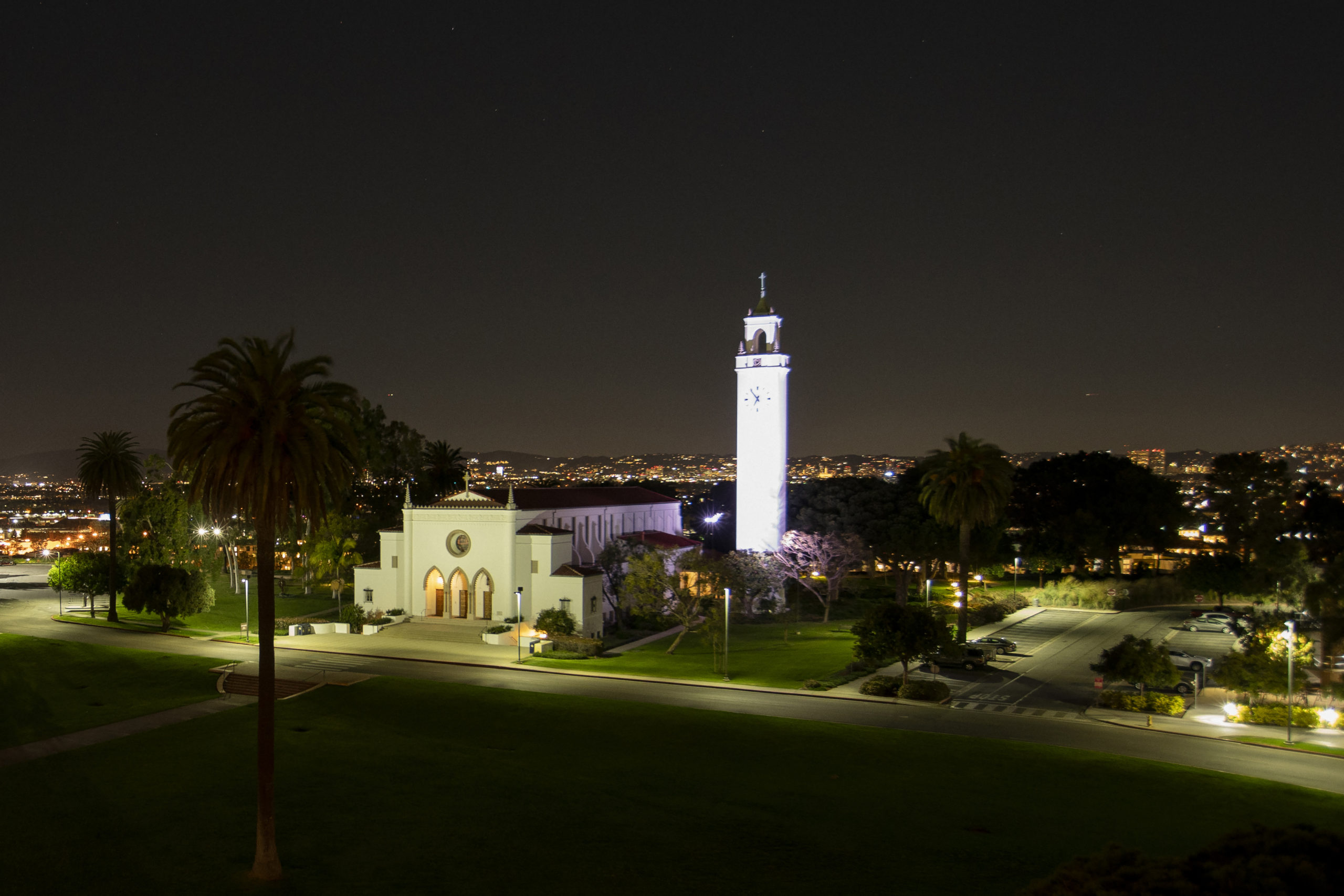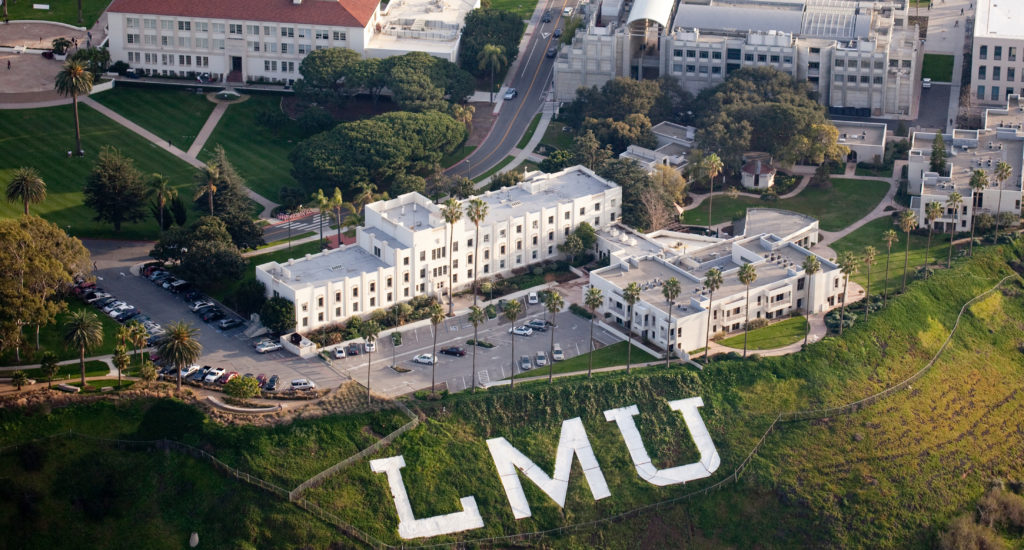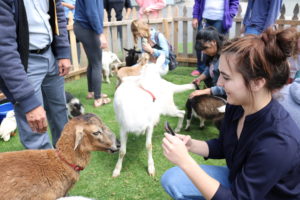By Jennifer Abe
Vice President for Diversity, Equity, and Inclusion
DIVERSITY, EQUITY, AND INCLUSION | In 2020 and 2021, the office of DEI gathered community check-in responses from the LMU community — undergraduates, graduate students, staff, and faculty — over three semesters to understand how the LMU community was responding to different phases of LMU’s period of remote work and learning as a consequence of COVID-19 and the global pandemic. The findings provide poignant evidence of the stress and suffering experienced by many members of the LMU community, as well as shifts over time in the sense of connection and belonging among community members.
The first check-in survey was administered in April 2020, a month after we had shifted online and were just beginning to learn about social distancing. The second check-in was administered in October 2020, as the university embarked on its initial fully online semester; we were technologically more prepared to address the demands of remote teaching/learning, but beginning to rethink our curriculum, climate, and culture as the repercussions of the murders of Ahmaud Arbery, Breonna Taylor and George Floyd, and other innocent Black people shook the world into reckoning with racism and systemic injustice. We administered the survey for the third and last time in April 2021, during another semester of fully remote teaching, when we could hardly believe that it had been over a year since many of us had seen anyone at LMU or had even been on campus. Briefings on survey findings are now available (please see links and descriptions below in DEI Buzz).
The findings from April 2021, especially, indicate that many people in the LMU community have suffered illness, loss, and are still grieving: for example, about 15 percent of survey participants revealed that they had lost a family member to COVID-19, including 31 percent of staff survey participants and 43 percent of our undergraduate participants. Over time, all three surveys highlight the challenge of finding a sense of belonging, perhaps made more difficult in a world that no longer seems familiar. The accumulated stress in our home lives, as well as social and work spheres, is taking its toll, even as a silver lining of continued connection to LMU appeared in the findings for most groups. How do we find our way through this time to community and to full life when the toll of our times is weighing on us so heavily?
The season of Advent can remind us about what it means to live in hope. This season is all about living in anticipation, pointing us toward that which is longed for, but not yet realized. In this time of continued uncertainty, as we fight distress, and sometimes despair, it may be a particularly good moment to reflect on others who have gone before us. We remember our ancestors and others who have had to fight wars, resist oppression, and who have stood up for their rights, for their faith, and for justice even when their historical conditions seemed exceedingly bleak. They show us, through their lives and examples, what living in faith and hope can mean for us in our time. Yes, these times are hard, our nerves are frayed thin, and our own well-being may feel like a far-off memory, as well as distant aspiration. Yet we also draw strength from remembering that, although the present historical moment may be uniquely challenging, we join generations of others across time who have been faithful, whether fighting for their own mental health or for freedom and justice, who have persevered in darkness, when dawn and light felt far off. They lived in hope of a different future.
What does it mean, then, to choose to live in hope? It is not the same as living with optimism. Living in Advent hope requires faith that the future is not ultimately written by those in power, but can be inscribed by the humble and lowly. It is to remember that a birth in a stable, can show us another way to life, incarnated through weakness, vulnerability and uncertainty. The “slow work of God” continues, within us, through us, and in our world, even if we cannot see it unfolding. There is hope. We can persevere. We will contribute to a better future in whatever way we are able, even if we are not able to witness the ultimate fruits of our labor. That is what it means for each of us to live in hope.
I have been honored to work with you in my role as VP of Diversity, Equity, and Inclusion these past few years. Thank you for this opportunity to grow and learn with you. May this Advent be a time of renewal and commitment to living in hope, for you and your beloved ones this season.
DEI Buzz:
All community check-in survey briefs are now available on our website. Please click on the links below to access them.
April 2020 Brief
The first survey did not include any demographic items, except for professional role (staff, faculty, undergraduate, graduate student) and focused on the impacts of COVID-19 in three areas: home/family, social, and work/study life. There were a few items related to the experience of remote teaching/learning and sense of connection and belonging, as well. All of these items were asked in subsequent surveys as well.
October 2020 Briefs:
The second survey included a number of demographic items, in response to community feedback and input, as well as additional items related to the impacts of fighting racial injustice and systemic racism. The findings are divided into two sections:
- October 2020 Part I: Findings by role and race/ethnicity
- October 2020 Part II: Findings by gender, disability, and caregiver status
April 2021 Brief:
The third survey continued the questions asked in the April and October 2020 surveys, but added an item on COVID-related illness and loss for self, family members, and friends. There is no brief specific to April 2021. Instead, we highlight and report selected longitudinal changes over time. We include losses related to COVID from the April 2021 survey in the overall report.
“Addressing Demands” updates will be available by the end of the week as part of LMU’s continuing commitment to track progress on issues identified by Black students (#BlackatLMU), as well as the Black Faculty and Staff Association (BFSA).
DEI extends heartfelt congratulations to Angelina Lee, president of the Asian American and Pacific Islander Faculty and Staff Association (AAPIFSA) at LMU. Angelina, who works in Career and Professional Development (CPD) at LMU, has been an inspiring leader for AAPIFSA and a strong DEI advocate at LMU, working in solidarity with other affinity group leaders to fight systemic racism and oppression, and providing support to community members. She was recognized by the Mountain Pacific Association of Colleges & Employers (MPACE), her professional organization, with its Diversity & Inclusion Award. Last year, Branden Grimmett was recognized by MPACE with its inaugural D&I Award. Go Lions! Congratulations to Angelina for being recognized for her outstanding DEI contributions!




